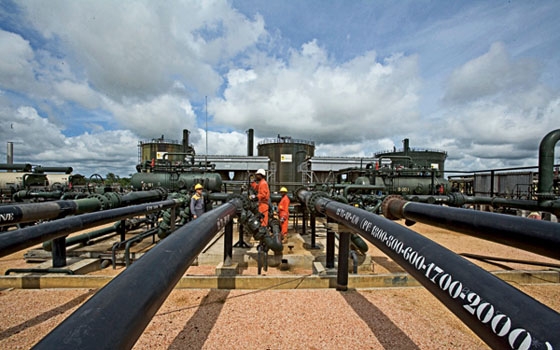The Institute of International Finance (IIF) issued a report on Iraq in which it indicated that the economy posted a real growth of 11% in 2012 from the low base registered in the previous decades. Such a rise is mainly attributed to a resurgent hydrocarbon sector, where oil production has caught up with the 1970s pre-war record levels.
The IIF estimates that the expansion in the hydrocarbon sector last year, at 15% in real terms, was boosted by the development plans launched in 2008. The non-hydrocarbon sector, on the other hand, grew by 6% in 2012. The relatively lower growth is partially explained by the lack of domestic investment, in addition to the decaying state of infrastructure hindering the private sector growth and the chronic shortage in power supply, where the generation capacity is less than half the demand. The current situation is a result of years of wars and sanctions.
The strong hydrocarbon situation has reinforced the current account surplus, which stood at 23.1% of GDP in 2012. On the other hand, when it comes to the fiscal balance, it swung to a deficit of 1.9% of GDP in 2012, down from a surplus of 7.5% a year earlier. According to the IIF, the rise in hydrocarbon revenues was offset by a 17% rise in total expenditures, mainly linked to current expenditures, especially those tied to the public sector wages and employment. Furthermore, a share of 5% of Iraq’s oil revenues is paid annually to the UN as the country disburses fees related to war reparations, a legacy of the Gulf wars of 1990 and 2003, as per the IIF.
Regarding gross government debt, it shrunk from 93% of GDP in 2011, to 76% of GDP in 2012, mainly due to a debt cancellation deal with the UAE. Public external debt constitutes over 90% of gross debt in Iraq, much of it accumulated under the previous regime, and mainly held by GCC countries. The hydrocarbon sector would continue to expand, assuming political and regional disputes are contained. However, internal disputes, interacting with regional turmoil, remain the primary challenge for Iraq, as per the IIF.
Mena Weekly Monitor – Bank Audi Research
1 February
























































